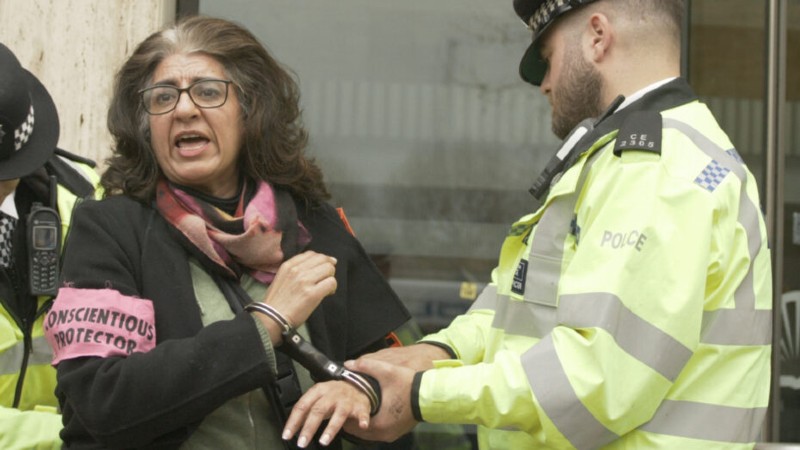QUICK SNAP: LIVE FROM LOCARNO
Schools are paradoxical places: you learn about the benefits of democracy in a place which is essentially a dictatorship. The virtues of free speech and debate are praised in a world where you have to stick to a strict regimen and follow the rules otherwise you will be suspended or expelled. Additionally, as a young person, you are not even allowed to vote yet, meaning that while you learn about the freedom of the world around you, your impact on it is severely limited.
But in countries with an authoritarian bent, such as Thailand, which is a constitutional monarchy that allows no criticism of the King whatsoever and was ruled by a military junta until 2019, school doesn’t necessarily seem to contrast against the government itself; in fact, it compliments it. Within an authoritarian system, teachers are able to wield strict control over their students while the rot of corruption quickly seeps in.
It’s within this world that we meet the titular Arnold (Korndanai Marc Dautzenberg). Recently returning from an exchange in the USA, he is both a smart student — recently winning a maths olympiad — and a smart-aleck, feeling himself above and beyond the rest of his Thai contemporaries while sometimes toying with the idea of making of a difference. Like many coronavirus-set films recently, his rebellious streak is best complimented by the fact he rarely wears his mask, as well as taking naps in class and talking back to teachers. Think Max Fischer with a bald head and a passive attitude to life.
Director Sorayos Prapapan eases us into the material, giving us a great sense of school life — from the girlish games to the minutiae of classroom lessons to the boys sneaking in drinks in the backyard — before weaving in two distinct plot-lines: the rebellion of the students against corporal punishment in school — inspired by the real Bad Student movement in Thailand — and Arnold’s new job working for an exam-cheating service. Armed with exceptional talent, Model Student asks whether it’s worth trying to make a genuine difference within the system or to try and exploit it for your own ends.
If the two plot-lines don’t intersect as satisfyingly as they should, it suits the distanced, often-resigned tone of the film. Using static, planimetric frames, allowing the angles of the school building to intersect with the camera at 90 and 45 degree angles, the film has an ironic detachment that recalls the work of Aki Kaurismäki and Roy Andersson more than South Asian cinema. But Prapapan isn’t a slave to his own style either, knowing when to move the camera, switch to handheld, or insert some comic sound effects (which shouldn’t work but somehow do). The final result is an easily watchable satire that shows great confidence from a first-time feature director, as well as the kind of raw sincerity that often gets smoothed away by someone’s second and third films. It will be fascinating to see how this style is developed in further features. I hope there will be many.
Arnold is a Model Student runs as part of the Concorso Cineasti del presente section of Locarno Film Festival, running from 3-13th August.









